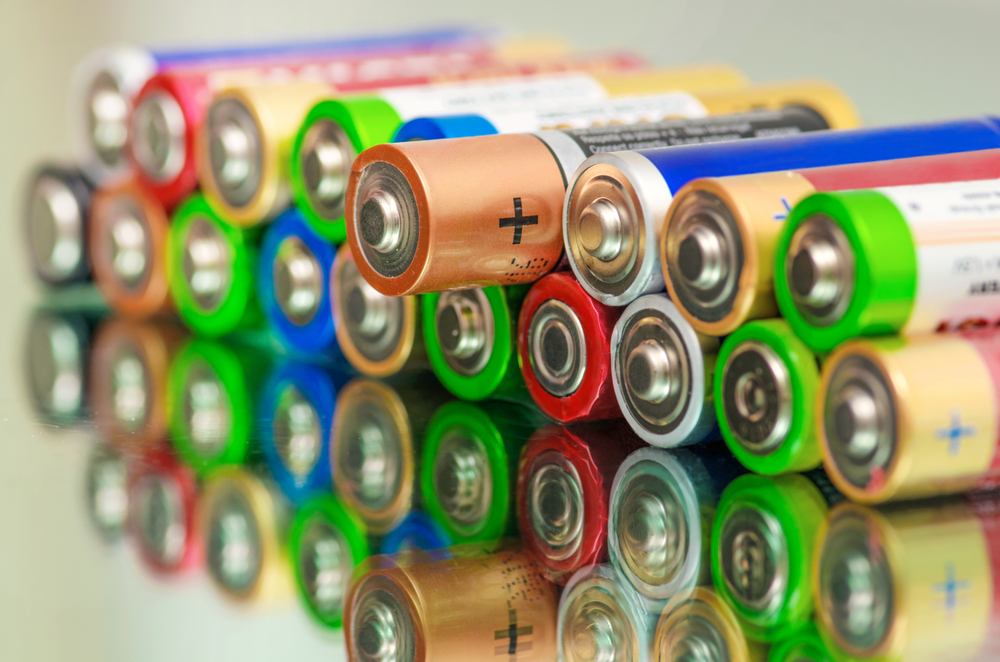How Can Batteries Be Dangerous to Your Pets?

Batteries are used so frequently in our homes that we often don’t think much of them just lying around. However, batteries can be dangerous to leave around. Dogs and cats may notice a battery and think nothing of biting or eating it. At VRC, we are no strangers to battery poisoning, and we want pet owners to be aware of the dangers that could be present in your own home.
The acid inside the batteries can be extremely problematic for pets. Alkaline or acid can leak out of the battery when it is punctured or swallowed. This acid is corrosive and can cause corrosive injuries in and on your pet. The most common batteries to get chewed on or swallowed by pets are alkaline dry cell batteries and button/disc batteries. Disc-shaped batteries are often lithium batteries.
While the acid in batteries is obviously dangerous, there are other dangers with batteries. One of these dangers is an obstruction. A battery can easily become lodged in the throat or gastrointestinal tract and cause serious problems such as difficulty breathing, difficulty defecating, and more.
Disc-shaped batteries pose a special danger for pets. These batteries can allow electric current to pass into the tissues of the GI tract as the battery is passed, which can damage tissues to the point of necrosis or perforation. The most common areas of the body affected are the oropharynx, esophagus, stomach, and small intestine. Of all batteries, the lithium button batteries are the most dangerous, as even a 3-volt button battery can cause severe necrosis to the gastrointestinal tract or esophagus in only 15 to 30 minutes.
Symptoms of Battery Poisoning
If your pet has eaten a battery, you may notice the following signs:
- Drooling
- Oral pain
- Vomiting
- Lack of appetite
- Pawing at the mouth
- Difficulty swallowing
- Abdominal pain
- Fever
- Lack of defecation
All of these symptoms could point toward battery poisoning, but they could also be signs of other illnesses. Be mindful if you see any of these symptoms. Take precautions by taking your pet in to see a veterinarian right away.
Diagnosing and Treating Battery Poisoning
At- home care for dealing with battery poisoning would start with flushing the mouth with tepid water for 15 to 20 minutes. It is important that vomiting is NOT induced in pets that have ingested batteries as the corrosive liquid can rupture or cause other severe damage to the esophagus. Additionally, battery acid could be inhaled into the lungs during vomiting, which would cause even more problems for your pet. Once you have flushed your pet’s mouth, you will want to take them in for veterinary care immediately.
In some cases, diagnosing battery poisoning is as easy as an X-ray. Treating battery poisoning is a little tricky, however. In the case of ingestion, the battery will need to be removed right away. Endoscopy or surgery can be performed to get the battery out of your pet’s system.
Your pet is also going to need pain medication and antibiotics to prevent both pain and infection from the ulcers that pop up from the acid. You may also need to give your pet anti-ulcer medications, stomach protectants, and antacids. These medications are important to the healing of your dog or cat. If you are given any of these medications for your pet, be sure that you dole them out as prescribed to keep your pet healthy. During treatment, veterinarians will often recommend that you switch your dog to a bland or high-fiber diet.
Preventing Battery Poisoning
The only way to prevent battery poisoning is to prevent your pet from getting access to batteries. Unfortunately, batteries are in so many household objects that we don’t generally consider dangerous. While there are hundreds of items that could lead to battery poisoning, here is a list of a few that are very common:
- Toys
- Watches
- Hearing aids
- Remote controls
- Calculators
- Flashlights
- Cameras
- Wireless computer devices
- Garage door openers
Even the most well-intentioned pet owners may accidentally leave one of these items lying around. However, one simple thing you can do is make sure that you never leave batteries in an area where your pet can access them. If you happen to drop a battery, you should pick it up right away. Never leave drawers containing batteries open or batteries out in the open.
Always store batteries in a drawer or cabinet that your pet doesn’t have access to at any time. Some cats and dogs are smart enough to open drawers and cabinets, so you may need to purchase child-proof devices that will lock your pets out of these unwelcome areas.
While battery ingestion is scary, the most important thing you can do for your pet is to take them in to see a veterinarian right away. VRC is proud to offer high-quality emergency care for pets in the Malvern, Pennsylvania, area. If your pet has ingested a battery, you should either go to or call VRC right away at 610-647-2950. One of our ER veterinarians will help your pet throughout the diagnosis and treatment process. Our emergency clinic is open 24 hours, seven days a week.






 Email
Email
